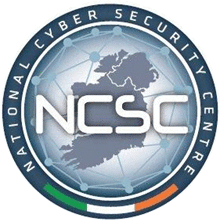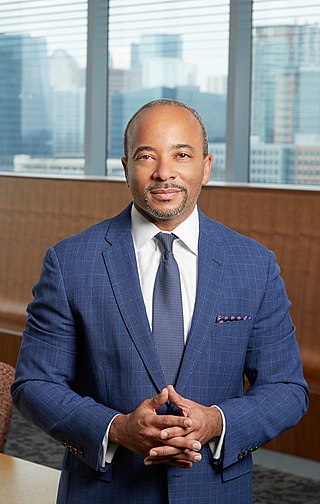
Computer security, cyber security, digital security or information technology security is the protection of computer systems and networks from attacks by malicious actors that may result in unauthorized information disclosure, theft of, or damage to hardware, software, or data, as well as from the disruption or misdirection of the services they provide.

Dorothy Elizabeth Denning is a US-American information security researcher known for lattice-based access control (LBAC), intrusion detection systems (IDS), and other cyber security innovations. She published four books and over 200 articles. Inducted into the National Cyber Security Hall of Fame in 2012, she is now Emeritus Distinguished Professor of Defense Analysis, Naval Postgraduate School.
The Engineering and Physical Sciences Research Council (EPSRC) is a British Research Council that provides government funding for grants to undertake research and postgraduate degrees in engineering and the physical sciences, mainly to universities in the United Kingdom. EPSRC research areas include mathematics, physics, chemistry, artificial intelligence and computer science, but exclude particle physics, nuclear physics, space science and astronomy. Since 2018 it has been part of UK Research and Innovation, which is funded through the Department for Business, Energy and Industrial Strategy.

Founded in 1990, the Information Security Group (ISG) is an academic department focusing on Information and Cyber Security within the Engineering, Physical Sciences and Mathematics School (EPMS) at Royal Holloway, University of London. It has around 25 established academic posts, 7 visiting Professors or Fellows and over 90 research students. The Founder Director of the ISG was Professor Fred Piper, and the current director is Professor Chris Mitchell. Previous directors include Professors Peter Komisarczuk, Keith Martin, Keith Mayes and Peter Wild.
Christopher W. Johnson, FRSE, FRAeS, FBCS, is a British computer scientist and Pro Vice Chancellor for Engineering and Physical Sciences at Queen's University, Belfast. Previously he was Professor and Head of Computing Science at the University of Glasgow, UK.

Susan Landau is an American mathematician, engineer, cybersecurity policy expert, and Bridge Professor in Cybersecurity and Policy at the Fletcher School of Law and Diplomacy at Tufts University. She previously worked as a Senior Staff Privacy Analyst at Google. She was a Guggenheim Fellow and a visiting scholar at the Computer Science Department, Harvard University in 2012.
An insider threat is a perceived threat to an organization that comes from people within the organization, such as employees, former employees, contractors or business associates, who have inside information concerning the organization's security practices, data and computer systems. The threat may involve fraud, the theft of confidential or commercially valuable information, the theft of intellectual property, or the sabotage of computer systems.

William Johnston BuchananOBE FBCS CEng PFHEA is a Scottish computer scientist. Buchanan is a professor in the School of Computing, Engineering and the Built Environment. He currently leads the Blockpass ID Lab and the Centre for Cybersecurity, IoT and Cyberphysical at Edinburgh Napier University. In 2017, he was appointed Officer of the Order of the British Empire (OBE) in the 2017 Birthday Honours for services to cyber security.
The National Cyber Security Hall of Fame, founded by Larry Letow and Rick Geritz, was established in 2012 to recognize the contributions of key individuals in the field of cyber security; its mission statement is, Respect the Past - Protect the Future. According to its website, it is designed to honor the innovative individuals and organizations which had the vision and leadership to create the fundamental building blocks for the cybersecurity Industry. The organization also highlights major milestones in the industry's 40-year history through a timeline representation, which includes inductees and their corresponding accomplishments.

Michael Goldsmith is a British computer scientist, senior research fellow and Lecturer at the University of Oxford, England. He is a member of Oxford University's Department of Computer Science. He is an associate director of Oxford University's Cyber Security Centre, and an Oxford Martin Fellow of The Global Cyber Security Capacity Centre. He is a fellow of Worcester College, Oxford.

The National Cyber Security Centre (NCSC) is a government computer security organisation in Ireland, an operational arm of the Department of the Environment, Climate and Communications. The NCSC was developed in 2013 and formally established by the Irish government in July 2015. It is responsible for Ireland's cyber security, with a primary focus on securing government networks, protecting critical national infrastructure, and assisting businesses and citizens in protecting their own systems. The NCSC incorporates the Computer Security Incident Response Team (CSIRT-IE).

Ciaran Liam Martin,, was the first CEO of the National Cyber Security Centre (NCSC). In September 2020 he was appointed Professor of Practice in the Management of Public Organisations at the Blavatnik School of Government, University of Oxford.

Eviatar Matania was the founder and Head of the Israel National Cyber Bureau and starting February 2015 also the founder and first Director General of the Israel National Cyber Directorate, that consists of both the National Cyber Bureau and the National Cyber Security Authority, a tenure he concluded in January 2018. Currently, Matania is a professor at the School of Political Science, Government and International Affairs at Tel Aviv University, where he also serves as the head of the MA Security Studies Program, and holds an adjunct professorship at Oxford University’s School of Government. Matania also holds consultancy roles in the fields of cyber, technological policies and strategies, and national security, and is the joint-head of the Smart Systems Initiative.

The Cybersecurity and Infrastructure Security Agency (CISA) is a component of the United States Department of Homeland Security (DHS) responsible for cybersecurity and infrastructure protection across all levels of government, coordinating cybersecurity programs with U.S. states, and improving the government's cybersecurity protections against private and nation-state hackers.

Máire O'Neill is an Irish Professor of Information Security and inventor based at the Centre for Secure Information Technologies Queen's University Belfast. She was named the 2007 British Female Inventors & Innovators Network Female Inventor of the Year. She was the youngest person to be made a professor of engineering at Queen's University Belfast and youngest person to be inducted into the Irish Academy of Engineering.

Raheem Beyah is an American computer engineer, researcher, and educator. As of January 15, 2021 he is the Dean of the College of Engineering and Southern Company Chair at the Georgia Institute of Technology. Prior to becoming the Dean, he was the vice president for Interdisciplinary Research and the Motorola Foundation Professor and the executive director of Georgia Tech's online masters in cyber security program. Beyah is also the co-founder and chair of industrial security company Fortiphyd Logic, Inc.
Andrea M. Matwyshyn is an American law professor and engineering professor at The Pennsylvania State University. She is known as a scholar of technology policy, particularly as an expert at the intersection of law and computer security and for her work with government. She is credited with originating the legal and policy concept of the Internet of Bodies.

Lindy Cameron is a British civil servant who is chief executive officer at the National Cyber Security Centre. She was previously Director-General responsible for the Department for International Development’s programmes in Africa, Asia and the Middle East. She was awarded an Order of the Bath in the 2020 Birthday Honours for her services to international development.
Ali Dehghantanha is an academic-entrepreneur in cybersecurity and cyber threat intelligence. He is a Professor of Cybersecurity and a Canada Research Chair in Cybersecurity and Threat Intelligence.
Mariëlle I. A. Stoelinga is a Dutch computer scientist based in the Netherlands. She is full professor of Risk Management for High Tech Systems in the Formal Methods & Tools Group at the University of Twente, Enschede, the Netherlands and holds a partial appointment as a full professor in the Software Science department at the Radboud University, Nijmegen. She is also director of Life Long Learning at the Faculty of Electrical Engineering, Mathematics and Computer Science, at the University of Twente.













